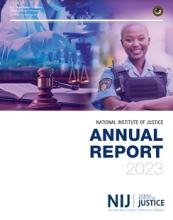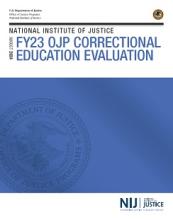Corrections research
Justice and Treatment Innovation: The Drug Court Movement
Drug-Abusing Women Offenders: Results of a National Survey
When Bigger Is Not Better: Design Sensitivity in a Sample of Criminal Justice Experiments
Codebook for SPSS Dataset: Experiments in Sanctions
Notes on Methodological Issues in Criminal Justice Sanctions
Registry of Randomized Criminal Justice Experiments in Sanctions
Impact of Differing Staffing Rations on Prison Environments
National Institute of Justice Fiscal Year 2023 Annual Report
Celebrating 10 Years of NIJ’s Law Enforcement Advancing Data and Science (LEADS) Scholars Program - 2024 NIJ Research Conference
In 2014, NIJ established the Law Enforcement Advancing Data and Science (LEADS) Scholars Program to support research-minded, mid-career sworn law enforcement officers working to integrate research into agency policy and practice. The LEADS Scholars Program helps participants develop independent research and provides support to identify current evidence on priority issues.
See the YouTube Terms of Service and Google Privacy Policy




